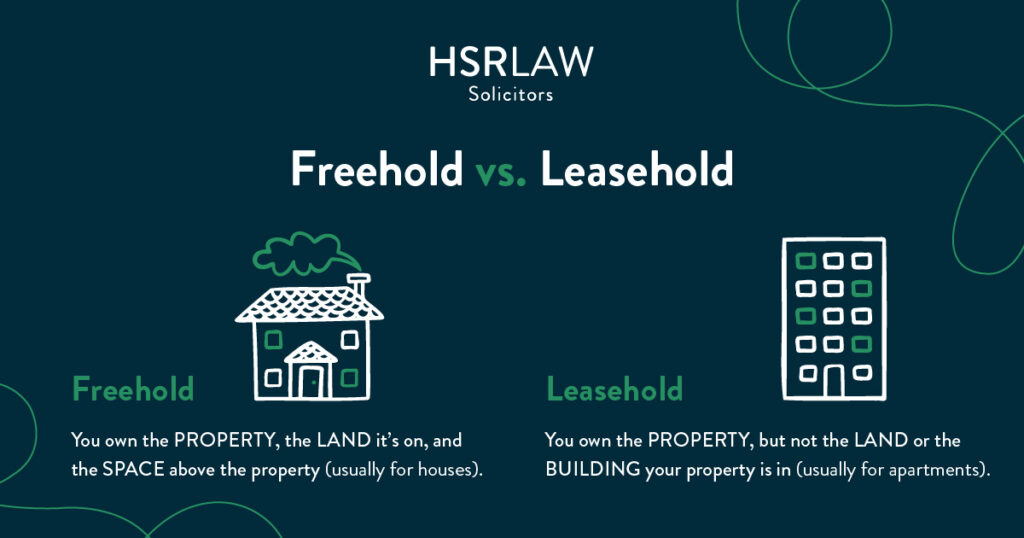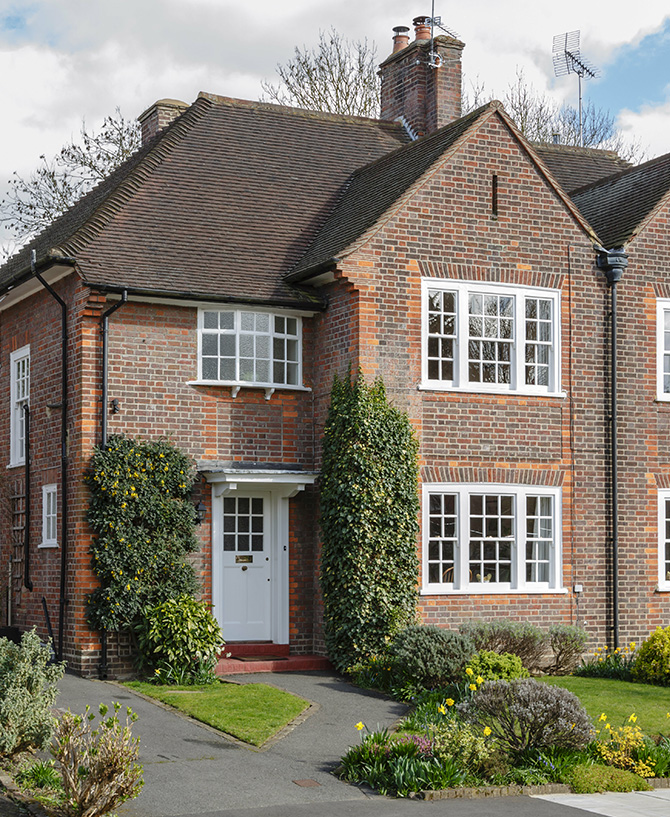What is the difference between a freehold and leasehold property?
When it comes to buying or selling property in England and Wales, you’re likely to come across the terms “freehold” and “leasehold”. These are the two main types of legal ownership, and understanding the difference between them is crucial before making any decisions.
Put simply, freehold means that you own both the property and the land it stands on outright, for an unlimited period. In contrast, leasehold means that you own the property for a set number of years, but not the land it sits on. The land (and often the building itself, in the case of flats) remains under the ownership of the freeholder or landlord, and you are granted a lease to occupy the property for a defined term, commonly 99, 125 or even 999 years.

These distinctions affect everything from your legal responsibilities to your ongoing costs and future rights, such as lease extensions or the ability to make changes to the property. While solicitors frequently use these terms during the conveyancing process, they can be confusing if you’re not familiar with how property law works in practice.
Understanding whether a property is freehold or leasehold can have a significant impact on your decision to buy, how you manage the property, and what future obligations you might face.
What is a Freehold property?
With a freehold property, you will own both the building and the land that it’s sat on.
Most traditional houses in the UK are freehold properties. Owning a property in this way means you won’t have a landlord (to pay rent to) and you won’t have any time limit for which you can use the property for. Generally speaking, you wouldn’t expect to see too many other restrictions on your use or enjoyment of the property (although that’s not to say things like restrictive covenants and rights of way aren’t commonplace too).
What is a Leasehold property?
A Leasehold property is typically used to describe your ownership of part of a building or block, but not the actual land or the building itself.
In the most common context, flats are generally leasehold property. This means that you’ll have a lease from your landlord which will give you the right to use that flat for a set period of time (99, 125, or even 999 years). You’ll generally pay market rate for the flat – almost the same price as buying a house.
However, each year you’ll also have to pay a certain rent (usually only £1 or £100 a year) and comply with various obligations (like repair the inside of the flat and not undertake alterations to the flat without the landlord’s permission). The landlord typically owns the land that the building is built upon, and the internal and external communal areas of the block. The landlord will be responsible for the maintenance and repair of the communal areas (like car parks and corridors) and in return you may be asked to pay a “service charge” to cover your share of those costs. Once the lease comes to an end, ownership may revert back to the landlord, although applying to extend your lease (paying some money to the landlord for doing so) is often possible.
Freehold v Leasehold: Is Freehold better than Leasehold?
Properly drafted, and making sure that you take specialist advice, there is no reason why owning a leasehold property should be deemed inferior to owning a freehold property. Banks view leases as good security for mortgages but its really important to have them checked over so that you fully understand your rights and obligations under them.
Freehold and Leasehold FAQs
Yes, on occasions, leaseholders may have the right to purchase the freehold, particularly with houses. For flats, a group of leaseholders can apply to buy the freehold together through a process called collective enfranchisement. HSR Law say that “converting leasehold to freehold can offer greater control and long-term value, but the legal process is complex and expert legal advice should always be taken early.”.
Once a lease expires, ownership of the property typically reverts to the freeholder, unless the lease has been extended beforehand. This can seriously affect the property’s value and mortgage eligibility. When a lease is approaching the end of its term it is usually viable to apply for a lease extension. HSR Law highlight that it’s essential to check how many years are left on a lease before buying and to consider extending leases well in advance of expiry.
There’s no one-size-fits-all answer. Freehold generally means more freedom and fewer ongoing charges, while leasehold (often used for flats) may involve service charges and landlord permissions. HSR Law say that “first-time buyers should look beyond the price and carefully assess the terms of the lease or title to avoid unexpected obligations later such as property repair bills or ongoing maintenance charges.”.
Freehold land means the owner has outright ownership of both the land and any buildings on it, with no time limit on how long it can be held. Leasehold land, on the other hand, is owned for a fixed term under a lease agreement with a freeholder. HSR Law explain that while freehold gives full control over the land, leasehold usually comes with conditions and obligations, such as paying ground rent or needing permission for alterations.
Contact HSR Law for guidance and assistance when buying a Leasehold or Freehold property
If you want more information, advice and guidance about choosing a freehold or leasehold property, contact our residential property team who’ll be more than happy to help you.
This article was written by Paul Russell, Partner and Commercial Property Solicitor

